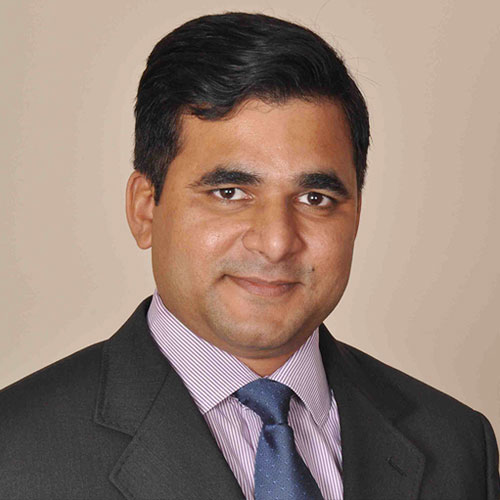Mr. Amit Tripathi

Mr. Amit Tripathi
CIO – Fixed Income. Reliance AMC
Amit has more than 20 years experience in Financial Services. At the age of twenty-eight, he became one of the youngest Debt Fund Managers at Reliance Capital Asset Management Ltd. He has been with RMF for around 14 years and in that time, he has evolved into a stellar portfolio manager, combining experience across the yield curve, with robust credit evaluation skills.
Amit has been an integral part of RMF's journey to become one of the largest and most respected fund houses in the country. He has successfully managed various fixed income and hybrid funds which have been recognized for superior performance both nationally and internationally. In his current role as CIO- Fixed Income, he leads a team of 20 highly motivated and experienced fixed income professionals.
Q. What are the key challenges faced by the debt markets in India?
Answer: Absence of retail investors holding bonds directly is a key challenge, though market in India is robust and more institutional driven rather than retail driven. SEBI and government are taking steps to improve the reach of debt markets among retail investors as well.
Q. How has been the investor behaviour in debt markets in recent times? Please brief us on the fund flows into different scheme categories.
Answer: Post SEBI recategorization of mutual funds this year, there has been a lot of realignment of investors’ money due to the same. We must give atleast 6 months to 1 year to see a clear trend on where the flows are happening.
Q. Please brief us about challenges being faced by NBFCs and its' impact on the debt markets?
Answer: NBFCs have been there for long and are well equipped to handle liquidty & credit cycles. The issue started with one issuer defaulting and then the fear of contagion spreading across the market. The main problem facing NBFC’s was that they were funding long term loans with short term borrowing so there was a fear of asset liability mismatch in some cases. It led to borrowing costs increasing for NBFC’s and the market as well. Subsequently we have seen liquidity supporting measures from the government and RBI which has led to some gradual improvement.
Q. How is the liquidity position in the markets /economy? Will it be a factor impacting economic growth and interest rates?
Answer: Post IL&FS there was a liquidity squeeze in the market due to which yields shot up across the curve, however, RBI and government took steps to supply liquidity in the market. RBI announced 40,000 crs of OMO purchases in November to supply liquidity and had done another 90,000crs of OMO purchases in the previous six months. Liquidity is expected to improve as flows are back to normal.
Q. What would be your advice to investors looking to safely invest their funds in debt markets? Where should they invest?
Answer: Investors should look at short end of the curve (0-3 years) and depending on their time horizon they should select their fund. If investor is looking at investment upto one year, then they should look at ultra short term funds, for 1-3 years, Short term category remains attractive. For investors who have some risk appetite can look to invest in credit risk funds for a 3 year horizon given the attractive yields they carry.
Q. Please tell us about your fund management strategy and how it has benefited debt investors in recent times?
Answer: We have a clear investment policy and strategy for each fund which is adhered to as a process. When we saw yields rising up, we had reduced our duration in funds to protect the impact of rising yields.




